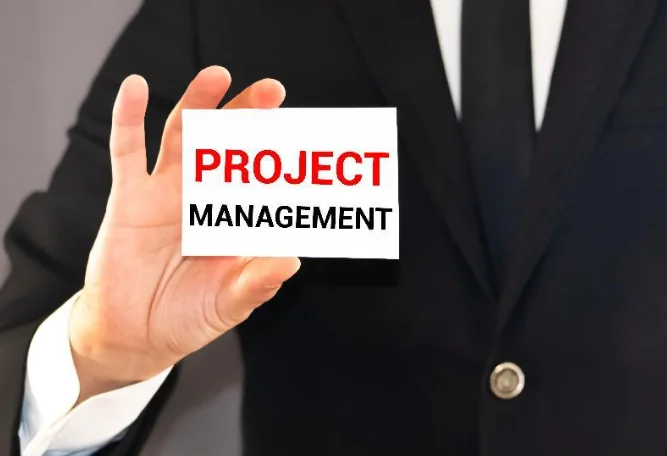Have you ever wondered what separates successful project managers from the rest? It’s often that coveted PMP Certification hanging on their wall. Think of PMP certification as your professional passport – it opens doors to opportunities worldwide and validates your expertise in ways that experience alone sometimes can’t. Let’s dive into everything you need to know about this game-changing credential.
How do I get PMP certification?
The highest certification offered by the Project Management Institute (PMI) is the Project Management Professional (PMP) Certification. It’s like having a black belt in project management – it shows that you’ve learnt the core principles, practices, and methods that drive great project results.
The PMP Certification confirms your ability to handle projects successfully across various businesses and methods, including standard, agile, and mixed approaches. Unlike other licenses that focus on specific tools or methods, the PMP takes a broad view of project management skills. Key Components of PMP Knowledge:
- Managing the integration of projects
- Scope, Time, and Cost Management
- Quality and Risk Management
- Communications and Stakeholder Management
- Resource and Procurement Management
Why PMP Certification Matters in Today’s Market
In today’s competitive environment, PMP Certification isn’t just nice to have – it’s often necessary. Employers increasingly seek qualified professionals who can deliver projects on time and to specification. Market Demand Statistics:
- Over 1.5 million professionals hold PMP certification globally
- 83% of high-performing businesses value project management
- Companies with trained project managers finish 89% more jobs successfully
The certification demonstrates your commitment to the field and provides a common language and framework that transcends industry boundaries. Whether you work in IT, construction, healthcare, or business, PMP Certification concepts are applicable globally.
PMP Certification Requirements and Eligibility
Before starting on your PMP Certification journey, you need to meet specific qualifying requirements. Here are the PMP certification requirements:
- Four-year degree holders: 5 years of project management experience
- High school diploma/associate degree: 3 years of project management work
- 35 hours of project management education (formal training)
The experience hours must span all five process groups: starting, planning, performing, monitoring, controlling, and closing. This ensures you’ve been part of full project lifecycles, not just specific stages.
Maintaining Your PMP Certification
Obtaining your PMP Certification is just the first step; maintaining it requires an ongoing commitment to professional growth and learning. Certification Cycle Requirements:
- 60 Professional Development Units (PDUs) every three years
- Renewal application and fee submission to PMI.
- Adhere to the PMI Code of Ethics and Professional Conduct.
PDU Categories:
- Education (minimum 35 PDUs): Formal learning tasks
- Giving Back (maximum 25 PDUs): Volunteer work and information sharing
- Working as a practitioner: Applying project management skills
The upkeep requirement ensures that qualified pros stay current with changing best practices and methods in project management.
Common Challenges and How to Overcome Them
Every Program Management Professional training candidate faces obstacles during their trip. Recognising these hurdles early and building methods to beat them significantly improves your chances of success.
Common Obstacles:
- Time management, balancing study with work/life responsibilities
- Information overload from thorough reading tools
- Exam worry affecting work
- Application complexity is causing delays
Success Strategies:
- Create accurate plans with extra time
- Focus on understanding rather than memory
- Practice stress management techniques
- Seek help from study groups and teachers
Future of Project Management and PMP
The project management world continues to grow, and the PMP Certification evolves to stay relevant in new business settings. Some of the emerging trends are:
- Digital change merger
- Remote team management skills
- Agile and mixed methods emphasis
- Artificial intelligence and automation effect
How PMP certification is evolving:
- Continuous changes to the test text
- Digital badge and identity proof
- Enhanced focus on leadership and strategic thought
- Global standards of best practices
The certification continually updates to ensure that qualified professionals remain valuable assets in an increasingly complex and dynamic business world.
Conclusion
PMP Certification reflects more than just another title – it’s your ticket to joining a top group of project management pros who drive corporate success worldwide. The journey requires focus, planning, and a commitment to ongoing learning, but the benefits – both personal and professional – make the effort worthwhile.
Remember, getting your PMP Certification is not the end goal but rather the beginning of a lifelong journey in professional growth. The skills, information, and network you build through the licensing process will help you throughout your career, opening doors to chances you might never have thought of.
Whether you’re just starting to consider PMP Certification or you’re already deep in preparation, stay focused, trust in your abilities, and remember that thousands of professionals have successfully walked this path before you. Your license awaits – it’s time to make it happen.
